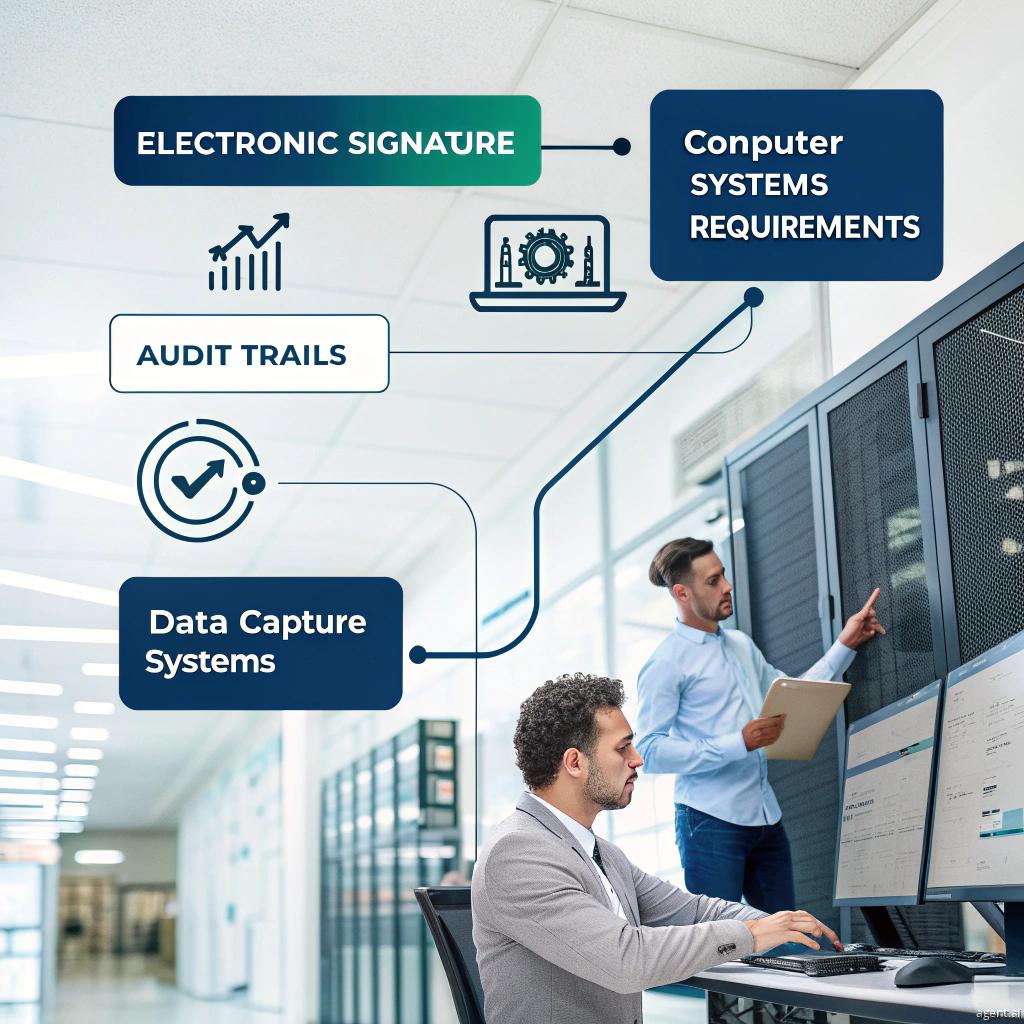Ensuring Compliance with 21 CFR Part 11 Requirements
In the ever-evolving landscape of healthcare and pharmaceutical industries, ensuring compliance with regulatory standards is not just a good practice – it is essential for success. One such regulation that companies must adhere to is 21 CFR Part 11, which sets forth the requirements for electronic records and electronic signatures. When it comes to electronic data capture (EDC) systems, meeting these standards is crucial to maintaining data integrity and regulatory compliance.
Table of Contents
What are the key requirements of 21 CFR Part 11?
21 CFR Part 11 sets forth requirements for electronic records and electronic signatures to ensure the authenticity, integrity, and confidentiality of electronic data. Key requirements include the use of secure, computer-generated audit trails to track all changes to electronic records, as well as the use of electronic signatures that are as legally binding as traditional signatures.
How do these requirements impact the use of EDC systems?
When using an EDC system for clinical trials or other research activities, it is essential that the system fully meets all applicable FDA requirements, including those outlined in 21 CFR Part 11. This means that the system must have robust audit trail capabilities to track changes to data, as well as electronic signature functionality that complies with regulatory standards.
The Role of Audit Trails in Ensuring Compliance
What is an audit trail?
An audit trail is a secure, computer-generated record that tracks all changes made to electronic data. This includes who made the change, when it was made, and what the change entailed. Audit trails are essential for ensuring the integrity and authenticity of electronic records, as they provide a detailed history of all data modifications
How does an EDC system utilize audit trails to meet 21 CFR Part 11 requirements?
An EDC system should have robust audit trail functionality that captures all data changes in real-time. This includes not only changes made to the data itself, but also changes made to the system configuration or user permissions. By maintaining a detailed audit trail, companies can demonstrate compliance with 21 CFR Part 11 and other regulatory standards.

Electronic Signatures: Ensuring Data Security and Integrity
Why are electronic signatures important in the context of EDC systems?
Electronic signatures play a crucial role in ensuring the security and integrity of electronic records. In the context of EDC systems, electronic signatures are used to indicate approval or authorization of data entries, much like a handwritten signature on a paper document. These signatures must be secure, unique to the individual, and tamper-evident.
How does an EDC system incorporate electronic signatures to comply with FDA standards?
An EDC system should have robust electronic signature functionality that complies with FDA standards outlined in 21 CFR Part 11. This includes features such as password protection, encryption, and the ability to link electronic signatures to specific data entries. By implementing secure electronic signatures, companies can ensure data integrity and regulatory compliance.
Overall, ensuring compliance with 21 CFR Part 11 requirements is crucial for companies using EDC systems in the healthcare and pharmaceutical industries. By implementing robust audit trail and electronic signature functionality, companies can demonstrate compliance with FDA standards and maintain the integrity of electronic records. Investing in an EDC system that fully meets all applicable regulatory requirements is essential for success in today’s highly regulated environment.
Author: Aaliyah Raderberg
Aaliyah brings more than twenty years of accomplished experience in the clinical research industry to her position as Manager of Data Management, starting her career as a Clinical Programmer. In the early stages of her career, she started as a Database administrator (DBA) while pursuing her education. Through hard work and expertise, she advanced to positions such as data manager, analyst / programmer, and eventually a senior manager. On her free time, she builds websites, logos, cards, brochures, flyers, and other desktop publishing projects like creating and formatting books before they go into publishing and recently utilizing AI tools to automate repetitive tasks.
Aaliyah’s wealth of practical experience has provided her with a thorough comprehension of research and enhancing processes. She is skilled in optimizing efficiency, productivity, and achieving success in diverse functions. Aaliyah’s compassionate manner in guiding support staff allows her to effectively tackle employee difficulties by developing tailored solutions accurately.
Aaliyah is a dedicated and accomplished professional whose comprehensive expertise and leadership skills make her an invaluable asset to any organization.


Leave a Reply